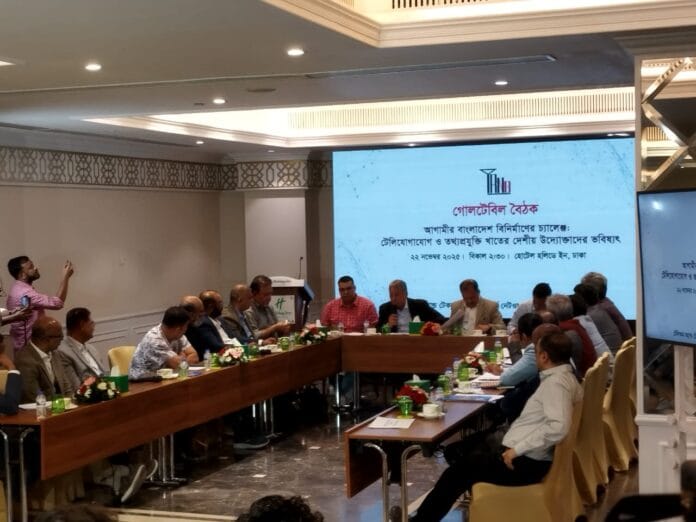Bangladesh’s new telecom policy is likely to put local investment in telecom and ICT infrastructure as well as thousands of jobs at risk, create a monopoly of foreign operators, according to local entrepreneurs.
At a roundtable of Telecom and Technology Reporters’ Network Bangladesh (TRNB) on Saturday, the local investors and telecom sector analysts also expressed concern that it will destroy national “digital sovereignty.”
In mid-September, the interim government introduced Telecom Policy 2025, ending International Long Distance Telecommunication Service (ILDTS) Policy 2010. Under the new licencing policy, there will be four categories, while there was more than a dozen previously.
Local operators alleged that the policy has been framed hurriedly without holding enough discussion with the stakeholders, and demanded that the new policy should be left for the next elected government for implementation.
“Despite much weakness, the previous ILDTS policy had limited foreign companies control on international gateway or backbone. It also ensured that domestic data and voice traffic will be regulated and operated by local licensees,” said telecom expert Sumon Ahmed Sadik in his presentation.
The new provision for 65-85 percent overseas investment in local telecom sector will actually ensure full control of foreign operators, washing away local small investments, he alleged.
Rashed Mehedi, former president of TRNB, said, “Local investors have so far created 10 lakh jobs in the country whereas foreign telecom operators tend to cut jobs.” He also questions about discrimination in licensing fees in favour of Starlink.
Local companies said the move to abolish licenses for ICX with the allegation as “middlemen” will only open up the opportunity for stealing for the foreign companies.
Pointing fingers at the interim government head Prof Muhammad Yunus, noted journalist Masud Kamal said, “A man who has no accountability is the most dangerous man of the world.”
He added that 35 percent profit of Grameenphone, the largest telecom operator in the country, goes to Grameen Telecom, a partner of the operator, which has now only 10-12 employees.
Another media personality Abdur Nur Tushar pointed out that even though foreign companies come with some initial investment, they do not bring in FDIs later.
“They usually borrow from local banks in foreign currencies during the later part of their operations and these dollars are actually borrowed from the central bank,” he explained.
Addressing the event as the chief guest, BNP’s Standing Committee Member Amir Khasru Mahmud Chowdhury assured of reviewing the policy, if they are elected to power in the next election.
He welcomed FDI, but said it should not come at the expense of employment and national security.
“Telecom and ICT is a highly profit-making sector and it needs changes to cater to the needs of modern time. I also support foreign investments, but these should not happen destroying jobs and local investment,” he said.

